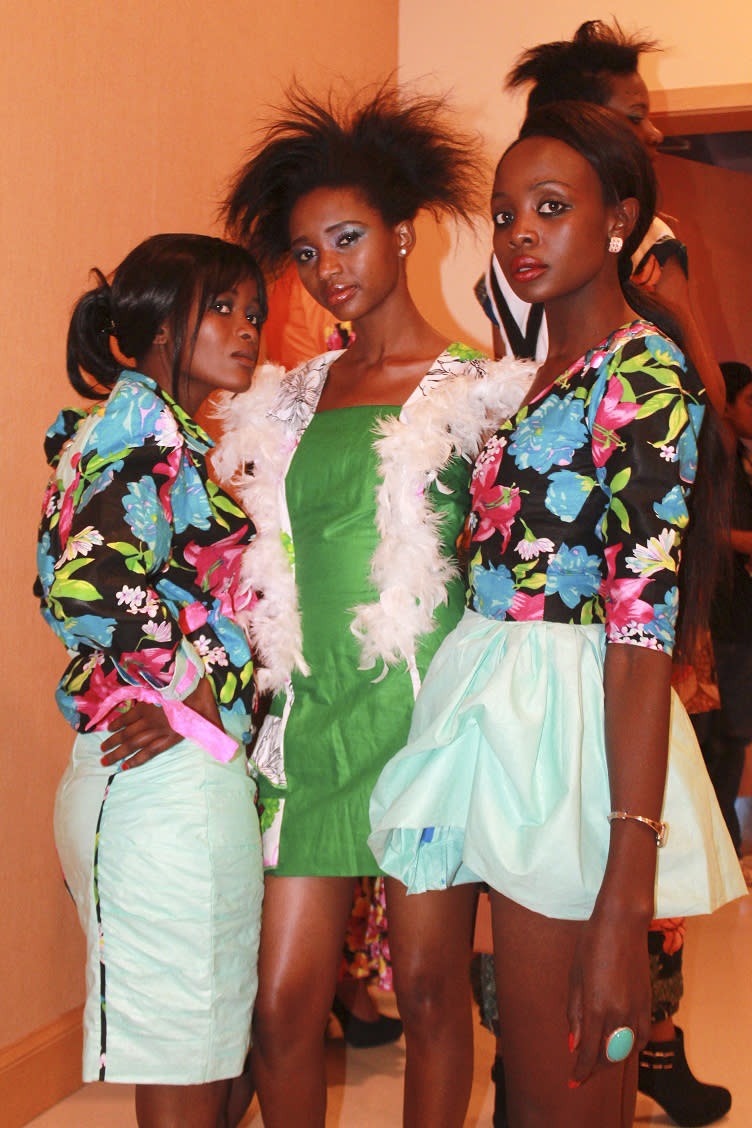Feathers, bottle tops mark Malawi Fashion Week
BLANTYRE, Malawi (AP) — Models on the runway in Malawi sported dresses with bottle-tops and wearing hats made of chicken feathers, as the southern African country hosted its first-ever Fashion Week.
More than a dozen designers took part in the event showcasing chic but affordable clothing in Malawi, a conservative country where women were banned from wearing pants and miniskirts until 1994.
"The goal is to progress the fashion industry that is booming in Africa," says Dawa Loga-Lemberger, CEO of Elegant Resources, a company that is helped stage the event earlier this month.
Malawi ranks among Africa's poorest countries, though local designers were keen to show it doesn't take expensive fabrics or highly-paid models to host a Fashion Week.
Designer Eva Gertrude Kapanda said she mostly made her clothes, earrings and shoes with locally available materials.
"I usually design about Africa," she says. "For example, I use chitenje (traditional printed cloth) which is cheap. I use plastics when I make earrings. I also use chicken feathers for the ear-rings. I make stuff from everything . wood, even bottle tops."
Many of the designs on display last week mixed traditional African wax print fabrics with Western-style designs.
"I use African material to make my garments but I do it in contemporary way, something that an African and somebody who is not African can actually feel comfortable to wear," says Patricia Ntambalika, a Malawian designer based in Windhoek, Namibia.
Ntambalika says fashion has a future in Malawi as attitudes toward clothing have changed.
"Malawian women never used to wear trousers or mini-skirts but nowadays people are free and they can wear whatever they want as long as it looks fashionable on them," she says.
Grace Khondi, who attended Malawi Fashion Week, said the designers had a lot to offer.
"I'm impressed with what I saw," she said. "We have lots of talent in Malawi."
Loga-Lemberger says the Malawi Fashion Week could mean big business not only for designers but also for local cotton growers.
"We need the cotton grower to grow more cotton. We also know that for the designers to be appreciated we need excellent tailors. We also need shop owners to take our designs to the end users," she says.


